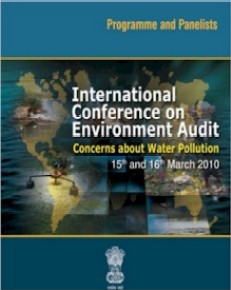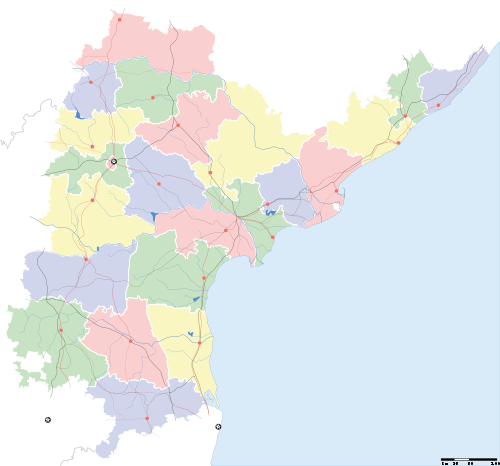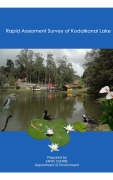Policies, Laws and Regulations
The deepest cut: Political ecology in the dredging of a new sea mouth in Chilika lake - Orissa (India)
Posted on 21 Sep, 2010 09:19 AMThis paper published in the journal Conservation and Society reassesses/debates the decision taken by the government to dredge a new sea mouth in the Chilika Lake in Orissa, India, which was based on Geographical Information Systems (GIS) studies.
The paper argues that decisions such as these need to be understood and evaluated by taking into consideration not only the underlying technical aspects, but by also exploring the political and historical contexts in which decisions are taken.
Save agriculture in Narmada valley
Posted on 20 Sep, 2010 04:44 PMNarmada valley is facing yet another crisis beyond the gigantic dams, which has arisen due to the huge canal network of the Indira Sagar and Omkareshwar canals. The canals of these two dams are not yet fully planned, yet certain estimates, which are not yet final by the Narmada Valley Development Authority show that not less than 10,000 hectares of agricultural land is to be acquired, but a larger acquisition is yet to come up in numerous villages, where even a basic socio-economic survey of the affected land and families is yet to be undertaken.
Draft paper on 'Monitoring Compliance of Environment / CRZ clearance conditions A New Approach'
Posted on 16 Sep, 2010 03:26 PM
Please consider signing this online petition drafted by the Environmental Support Group, who have been AID's partner for 10 years now (esgindia.org). This letter is regarding a 'Draft Paper' on 'Monitoring Compliance of Environment/CRZ clearance Conditions – A New Approach' drafted by an in-house Review Committee constituted on 25th August 2010 by the Ministry of Environment and Forests.
International conference on environment audit - Concerns about water pollution - CAG (2010)
Posted on 10 Sep, 2010 05:15 PM This link on the CAG website provides the details of an international conference that was held on 15-16 March 2010, in the backdrop of the environmental audit proposed by the the Comptroller and Auditor General (CAG) of India, for management and conservation of the environment .
This link on the CAG website provides the details of an international conference that was held on 15-16 March 2010, in the backdrop of the environmental audit proposed by the the Comptroller and Auditor General (CAG) of India, for management and conservation of the environment .
The purpose of this conference was to deliberate on the causes of pollution, action taken by governments and civil society to address this and environmental, management and legal interventions needed to put lakes, rivers and ground water on the path of sustainability.
More than 20 experts on water and water pollution issues were invited to share their views as panelists during the conference. Apart from these distinguished panelists, the heads of supreme audit institutions from countries like Austria, Maldives, Bangladesh and Bhutan were also present to share their experiences regarding audit of water pollution in their countries.
Planning Commission solicits your views and suggestions on the "Twelfth Five Year Plan" approach paper
Posted on 04 Sep, 2010 04:58 PMTransparency demanded in a letter to Jairam Ramesh on Polavaram Project - Himanshu Thakkar
Posted on 04 Sep, 2010 10:43 AM![]()
From:
Himanshu Thakkar
South Asia Network on Dams, Rivers & People,
c/o 86-D, AD block, Shalimar Bagh,
Delhi,
To: Shri Jairam Ramesh
Union Minister of State for Env and Forests (IC), New Delhi
Respected Sir,
I have just seen your letter dated Aug 18, 2010 to Orissa Chief Minister on the aboves subject, uploaded yesterday on MEF website.
- Your letter says that the Forest Clearance has been given to the Polavaram Project on July 28, 2010 is subject to the condition, "... no submergence and displacement of people including STs take place in Orissa and Chhattisgarh...". However, this condition is in complete contradiction with the environment clearance given by your ministry on Oct 25, 2005, which says in para 2, "Total 1,93,35 persons are likely to be affected by this project, out of that 1,75,275 persons in Andhra Pradesh and 6,316 persons from Orissa and 11,766 are from Chattisgarh." It is clear the condition of no submergence and displacement on Orissa and Chhattisgarh, stated in your letter, in the Tribal Development Ministry's condition, and in the forest clearance letter is in complete contradiction with the environment clearance given by you. One of them have to be cancelled due to this contradiction, we would like to know, which one would be cancelled.
Inviting public opinion on Western Ghats ecology - Ministry of Environment and Forests (Government of India)
Posted on 22 Aug, 2010 01:41 PM
How would we judge ecological sensitivity? Scientists view an ecologically sensitive area as an area whose ecological balance, once disturbed, is very hard to restore. Thus, steep Western slopes of Western Ghats, subject to heavy rains and winds, if deforested, are likely to be quickly stripped of soil cover and for ever lose their pristine vegetation. We do have a scientific understanding of the environmental attributes that render areas more sensitive; we also have insights into processes that have resulted in irreversible ecological damage.
Groundwater regulation under consideration for Andhra Pradesh
Posted on 16 Aug, 2010 05:01 PMThe legislation is likely to be in the form of an upgrade to the AP Water Land and Trees Act (WALTA).

Click here for the current Act
Attached are two working documents that are being used to frame the discussion for the new regulations.
PLEASE NOTE: These in no way represent final or official positions of the AP Government or other organisations and are not to be taken as such.
Rapid assessment survey of Kodaikanal lake - ENVIS Centre (TN) (2009)
Posted on 02 Aug, 2010 02:02 AM This document by the Department of Environment, Government of Tamil Nadu highlights the importance of the Kodaikanal lake as an important tourist destination and warns that this freshwater lake is under the threat of getting polluted and its biodiversity endangered.
This document by the Department of Environment, Government of Tamil Nadu highlights the importance of the Kodaikanal lake as an important tourist destination and warns that this freshwater lake is under the threat of getting polluted and its biodiversity endangered.
The document presents the findings of the study that aimed at assessing the physico-chemical and biological quality of the Kodaikanal lake.
Evidence indicates that unrestricted tourism activities have led to high use of plastic bottles, glass bottles, plastic bags, causing high levels of pollution and silting of the lake. Damaged fibreglass boats left inside the lakes also pose a serious threat to the lake ecosystem.
National Rural Drinking Water Programme - Framework for implementation - MoRD (2010)
Posted on 02 Aug, 2010 01:46 AMThe Government of India launched the Accelerated Rural Water Supply Programme (ARWSP) in 1972-73 to ensure provision of adequate drinking water supply to the rural community through the Public Health Engineering System.
The second generation programme started with the launching of Technology Mission in 1986-87, renamed in 1991-92 as Rajiv Gandhi National Drinking Water Mission. Stress on water quality, appropriate technology intervention, human resource development support and other related activities were introduced in the rural water supply sector.
The third generation programme started in 1999-2000 when sector reform projects evolved to involve community in planning, implementation and management of drinking water related schemes, later scaled up as Swajaldhara in 2002.
The Rural Water Supply (RWS) sector has now entered the fourth phase with major emphasis on ensuring sustainability of water availability in terms of potability, adequacy, convenience, affordability and equity while also adopting decentralized approach involving PRIs and community organizations.


